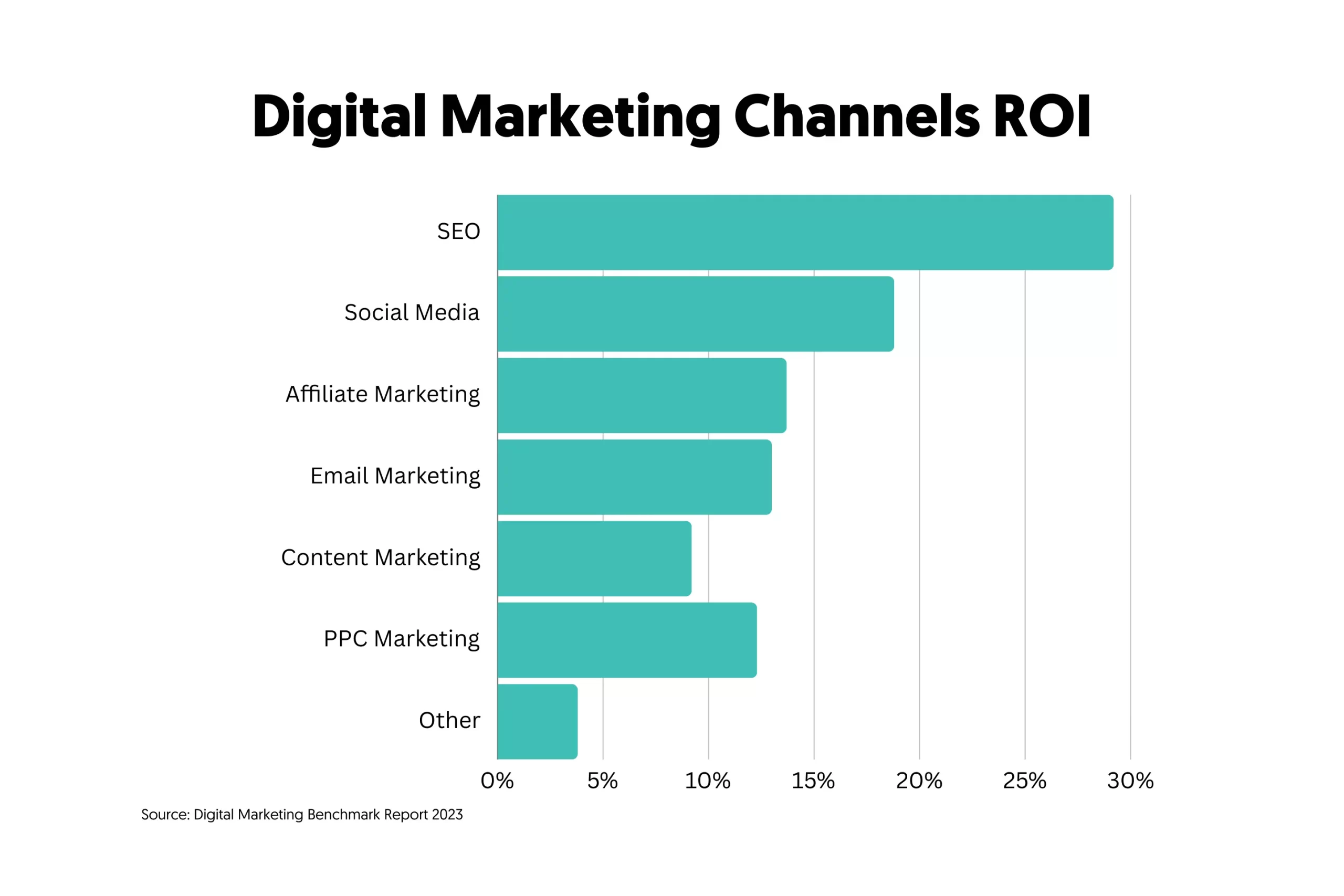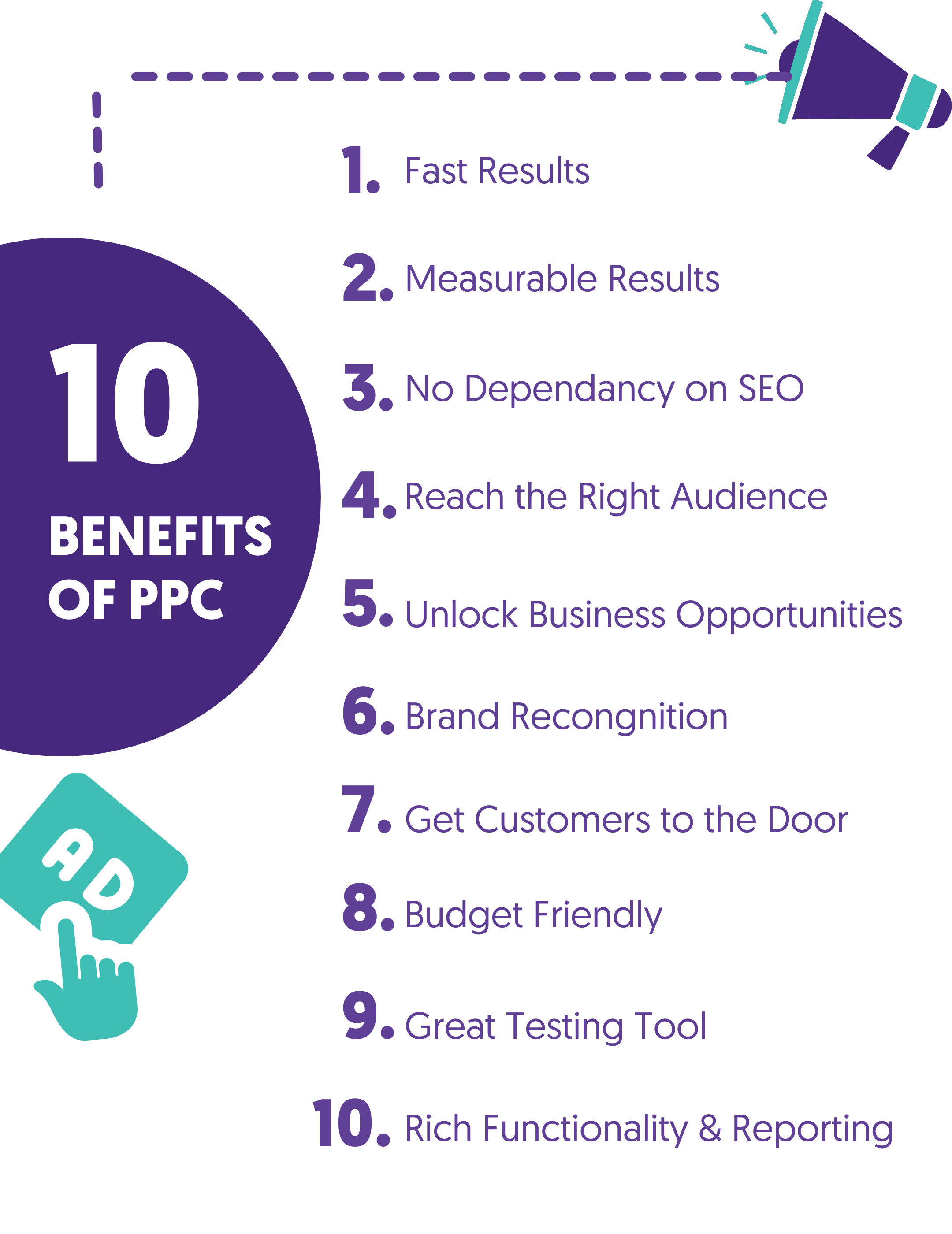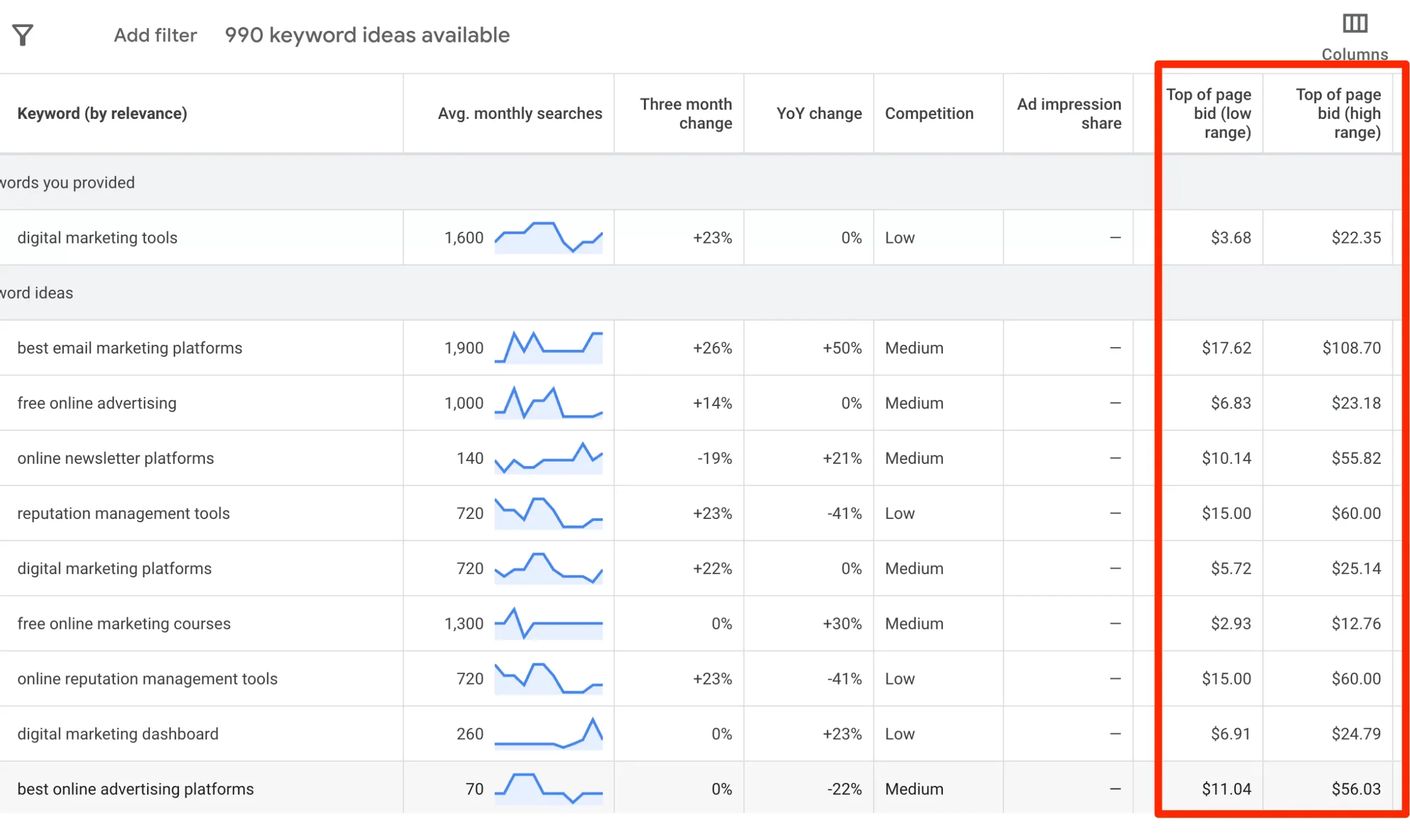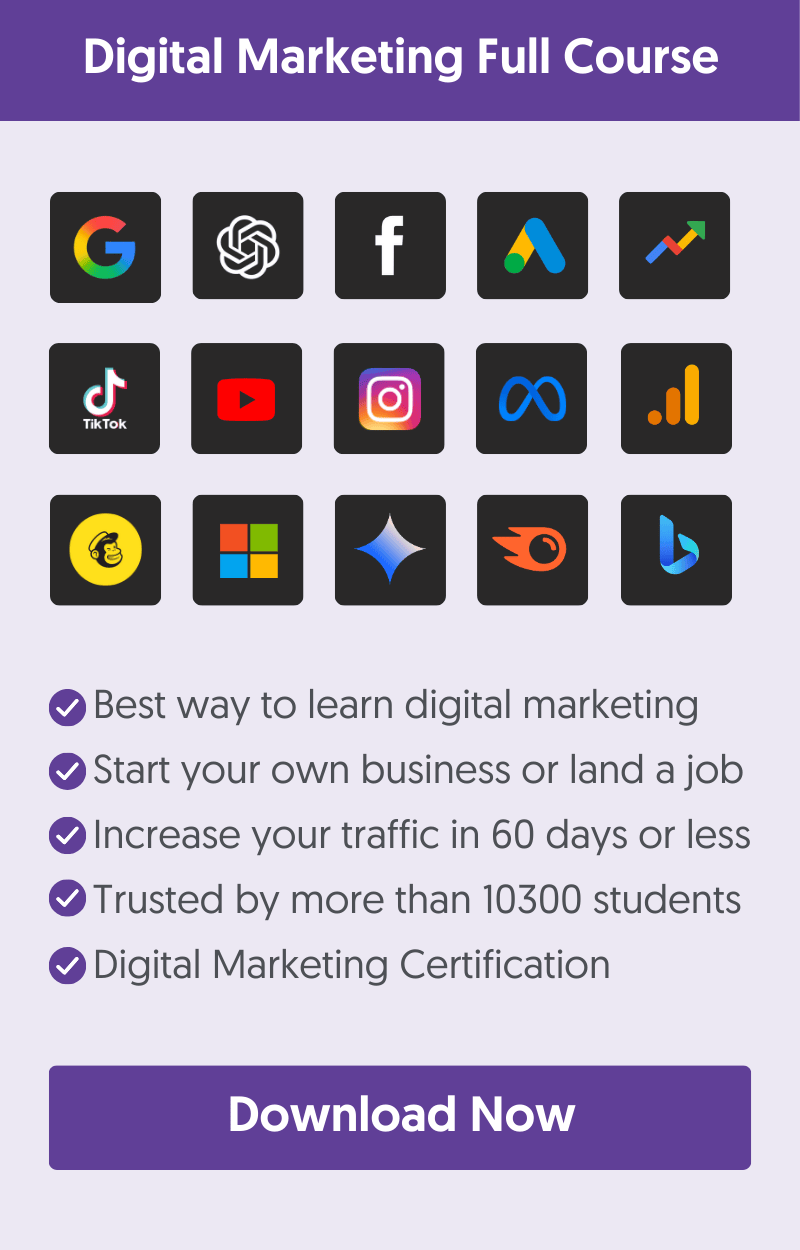In this post, you'll learn the pros and cons of SEO and PPC and which is better.
SEO Vs. PPC
SEO can help your website rank higher on Google organic results by making it more relevant to users, while PPC involves paid advertisements, which allow businesses to bid and show their ads next to related searches on Google.
SEO and PPC are types of search engine marketing tools you can use as part of your overall digital marketing strategy.
Here's a summary of the key differences between SEO and PPC:
| Feature | SEO | PPC |
|---|---|---|
| Cost | Free (after initial investment) | Paid per click |
| Results | Long-term, organic traffic | Instant, paid traffic |
| Control | Limited control over SERP placement | High control over ad placement |
| Suitability | Suitable for long-term growth | Suitable for immediate traffic needs |
What Is SEO?
aims to get free traffic from search engines by creating helpful content that satisfies the user intent for keywords that matter to your business. The SEO process has different stages involving:
- Performing keyword research to find keywords related to your business goals.
- Creating content that is useful for users and meets Google guidelines.
- Optimizing the technical infrastructure of a website.
- Promoting a website online to build credibility and gain search engine trust.
To effectively handle all SEO rules, the SEO process can be broken down into three main types: Technical SEO, On-Page SEO, and Off-Page SEO.

SEO Pros And Cons
These are the advantages and disadvantages of SEO as a marketing tactic.
SEO Pros
Long-term results
- A successful SEO strategy can generate traffic from search engines in the long term, while PPC traffic drops as soon as you stop paying for ads.
Cost-effective - SEO requires an initial investment to get started, but once you achieve good rankings, you get free traffic without paying for clicks or impressions. SEO has the highest ROI at 29.2%, outperforming PPC (12.3%).

Lower upfront costs - You can start SEO with a low budget and gradually increase your investment based on performance. With the rising PPC costs, you need to pay a considerable amount of money to get enough clicks to optimize your campaigns and determine their effectiveness.
Brand trust - Users trust brands appearing in the top positions of the search results, which enhances a business's reputation and credibility. In the long term, this results in more conversions and repeat customers.
Suitable for long-term growth - With continuous SEO efforts, you can take advantage of your domain authority to rank for more keywords and increase your visibility. With PPC, growth is not guaranteed, even with increasing budgets.
Better user experience - SEO guidelines help webmasters create websites that offer a great user experience.
For more details, read our guide on the benefits of SEO.
SEO Cons
The major disadvantages of SEO are:
It can take months to get decent traffic - SEO is not as fast as PPC. When you start an SEO campaign, it may take a couple of months to generate traffic from search engines, which is the major disadvantage of SEO.
Creating authoritative content is time-consuming and costly - The Google ranking algorithms reward websites with high levels of E-E-A-T (Expertise, Authoritativeness, Trustworthiness, and Experience).
This means that content has to be well-researched and written by experts. This process requires significant investment in time and resources and often hiring expert writers or industry professionals, which can add to the cost.
Popular keywords are highly competitive - Google has been around for over 20 years, meaning every popular keyword you can think of has much competition. If you're entering the market now, it may be impossible to rank for highly competitive keywords (in a reasonable amount of time).
In such cases, you need to adjust your strategy to target keywords with lower difficulty and build your way up or use PPC to target those keywords with paid ads.
What Is PPC?
PPC Marketing (aka Pay-Per-Click) is a digital marketing process of using advertising platforms (like Google Ads) to reach your target audience by placing your ads on top of the search engine results.

Every time someone clicks on your ads, you pay a fee. With PPC, you can get traffic from search engines and social networks like Facebook Ads and use similar concepts for paid ads.
The PPC process has the following stages:
- Perform keyword research to find which keywords to target in your campaigns.
- Create audiences based on demographics and user behavior.
- Create several types of ads with different messaging (depending on the platforms).
- Performing A/B tests to find out what's working for your audience.
- Create landing pages to redirect PPC traffic.
- Set budgets and other campaign settings.
PPC Pros And Cons
PPC Pros

Immediate (almost) Results - Compared to SEO, PPC is fast. You can set up a campaign targeting specific keywords and start getting clicks in a matter of hours.
Precise targeting - With the help of AI, PPC platforms like Google Ads have the necessary intelligence to find and target people who are more likely to be interested in your offering. This provides an advantage to both advertisers, who can reach their target audience, and PPC platforms, who make more money by bringing together advertisers and consumers.
Can be fully outsourced - You don't need the in-house expertise to run PPC campaigns, and you don't have to worry about Google algorithmic changes. You can outsource this task to professionals and monitor the results.
For more information read the benefits of PPC for small businesses.
PPC Cons
PPC costs are rising
- The average cost-per-click for any keyword is constantly rising. Google and Bing are raising prices to make more profit, and with the instability of SEO rankings, more advertisers turn to PPC to reach their audience, which raises the prices.
PPC campaigns require constant maintenance - You won't get a campaign right from the start. You'll have to perform several A/B tests to find out the messaging that resonates with your audience. This translates to higher costs and constantly developing new marketing ideas, which is not always easy.
PPC requires a constant investment - The biggest drawback of PPC is that once you stop investing in paid ads, your traffic will go back to zero. Unlike SEO, any money spent on optimizing ads and creatives is lost when the campaigns stop.
Which Is Better, SEO or PPC?
To help you decide which is the best marketing technique for your needs, we can compare SEO and PPC using four factors: cost, results, control, and suitability.
Cost
I have mentioned above that SEO traffic is free and PPC is paid, and while this is true, you should understand that it needs a lot of effort and hard work to get free traffic from search engines.
The competition is high for almost every keyword, and you need to have a high-quality website and a great SEO plan to get one of the top 5 positions and rip the traffic benefits.
Despite what some “SEO” companies try to sell you, there are no shortcuts. If you are unfamiliar with how search engines work or don’t know anything about SEO, the best way to get search engine traffic is to learn SEO or hire an SEO expert to do the work for you.
On the other hand, the Pay-per-click cost depends on several other factors. It depends on the popularity of the keyword, the number of advertisers, available ad positions, and many more. If it sounds a bit complicated, then it probably is, despite the efforts made by Google to make the whole system easier to use.
The good news is that you can estimate the average cost per click for the keywords you want to target and set your maximum daily budget.

As you can see from the screenshot below, the Google Keyword tool (which is part of Google Ads) gives you an estimate for the CPC (cost per click) for each keyword.
- SEO: The cost of SEO is indirect. You cannot pay to get to the first page, but you may have to pay for SEO services if you cannot do SEO yourself.
- PPC: You pay only when people click on your ad. You can use the Google keyword tool to calculate how much you will pay.
Results
Which method can bring more traffic to your website, SEO or PPC? SEO (organic traffic) can get you more traffic than PPC, so if you can rank your website for the keywords you want, you will get much more traffic than paying for those keywords.
This is because when your website appears in one of the top 5 positions, you can expect to have a continuous flow of traffic 24x7 without having to pay anything (the actual volume of traffic depends on how popular a keyword is).
So, organic traffic is better if you compare traffic and the cost of first-page positions for SEO and PPC traffic. Some studies suggest that PPC ads get more clicks than organic, but this also translates to a higher cost.
If, on the other hand, it is very difficult to get first-page positions for a keyword, then paying for traffic may be your only option since second and third-page positions will probably bring very little traffic.
- SEO: Organic traffic is continuous as long as you rank in one of the top positions.
- PPC: PPC ads can get more clicks, but you pay more.
Control
PPC Ads are shown above the organic results. Organic results can only appear below the sponsored ads. Whether your listing will appear in the top positions or first pages depends on how optimized your website is regarding on-site and off-site SEO.
- SEO: You can get first-page positions if your website is optimized for search engines.
- PPC: You can get your ad on the first page by paying a higher cost per click (CPC).
Suitability
Which visitor is more likely to convert (i.e., make a purchase, register to a newsletter, or respond to a call for action), someone coming from PPC Ads or organic search?
If your ads are highly targeted and optimized, then a visitor from PPC is more likely to convert than a visitor from search.
The reason is that a web page can rank for different keywords (other than those initially intended), so the search visitor may not find precisely the content (or product) that is looking for.
On the other hand, if you run a successful PPC campaign, you will only get clicks from visitors who are highly interested in your content or products.
- SEO: SEO traffic is better than other forms of traffic (i.e., social media), but in terms of conversion, it is not as good as PPC traffic.
- PPC: Highly optimized keywords will generate more conversions but will cost more.
Which One To Use: SEO or PPC?
The bottom line is that you must use PPC and SEO as part of your digital marketing strategy.
PPC can bring you faster results, so you can run a PPC campaign, test which keywords convert better, and then try SEO to rank for those keywords.
Use PPC when you have a high-converting product and SEO when you have a limited budget for advertising.
SEO may take time, but the results are long-lasting, making SEO suitable for long-term growth. While with PPC when you stop paying for clicks, traffic will also stop.



